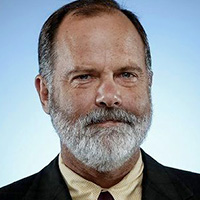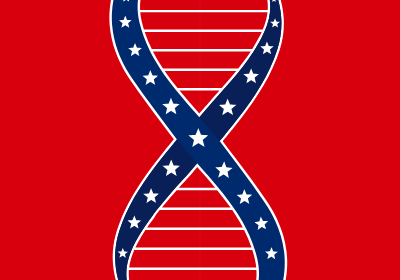THERE IS MUCH WE DON’T KNOW about hate, and much we still won’t know when the projects described in this issue of Blueprint are completed. We may never know, sadly, why hate so persistently corrupts the human heart.
But we are learning about its consequences. Schools, for instance, are witnessing the effects of division. As Jon Regardie reports in this issue, conflict and misinformation that have infected the larger society have undermined schools as well. Attempts to restrict learning — mostly by cynical politicians who pretend that Critical Race Theory or similar learning theories have corrupted primary education when they know full well this is not true — have only deepened the potential for harm. COVID and shutdowns made bad problems worse. And those problems stretch across the nation.
Meanwhile, the long tentacles of hatred reach into areas of our lives that may not be obvious. We recognize hatred in politics, or in the tiki-torch-lit marches of White supremacists. But Brett McCully, an assistant professor of economics at Collegio Carlo Alberto in Italy, and Jun Luo, a third-year Ph.D. student in the UCLA Department of Communication, are asking questions about the relationship between hatred and extremist media. They hope to gain insight into which causes which. The results of their research are still coming in, but the findings may soon help to illuminate whether certain media are merely reporting about hatred or whether their work is contributing to it.
Then there is what might be most troubling of all: the possibility that hatred not only affects the lives of young children, but that it also may lead some of those children to kill themselves. The dismaying potential for hatred to prove lethal in this way might be underestimated because of bias in studying the deaths of young people, particularly young people who are Black. Another enterprising pair of researchers, Jocelyn Meza, a licensed clinician who works with suicidal children, and Adrian Flores, who specializes in gender and women’s studies, are pursuing those disturbing possibilities. They, too, will soon report back.
The work of these students and professors won’t eliminate hatred, but it may begin to help us understand its ramifications and take steps to respond. If, for example, bias has blinded doctors and others to the pain being experienced by Black children, perhaps acknowledging that bias would help open medical eyes to that suffering and provide the care those children need.
The same may prove true for politics. American politicians these days might be more likely to capitalize on hatred than to reject it. But there, too, examining hatred and its consequences could prove beneficial. If we are better able to identify hatred, we have the power to hold it against candidates and other political figures who use it.
Admittedly, that’s not foolproof. History and polling suggest that there is political power in hatred. Demonization of those who are different — by race, religion, immigration status, sexual orientation — is a time-tested way of electrifying a chunk of the electorate. It even has a name: “othering.” And it works: Surveys show that many Republicans and Democrats now see members of the other party not only as wrong on issues, but also as less moral than themselves.
There is reason to believe that some voters are tiring of the process, eager for more cooperation in Washington and ready for differences to recede rather than boil into blood feuds over which party or candidate holds the absolute truth and which is guilty of crimes.
Will the study of hatred lead to more comity, at least in public life? There is no way to know quite yet. We are left to hope.























